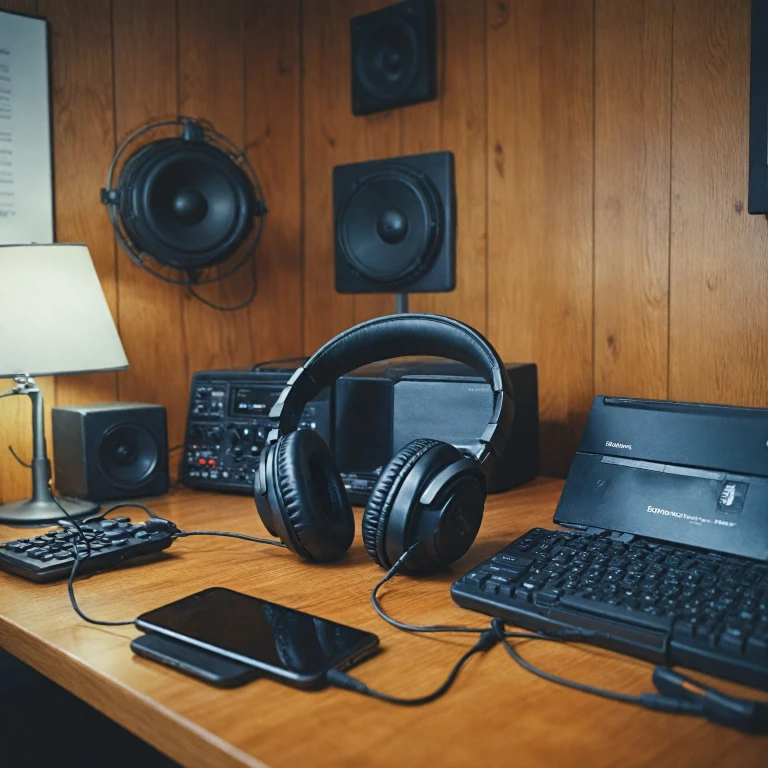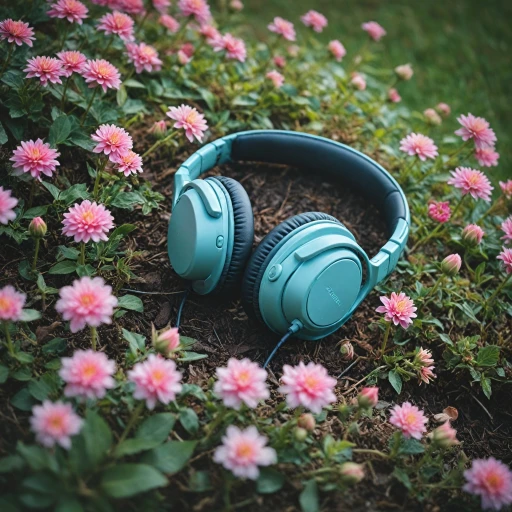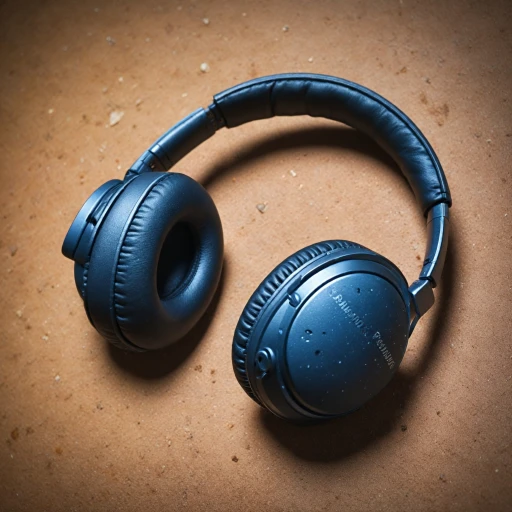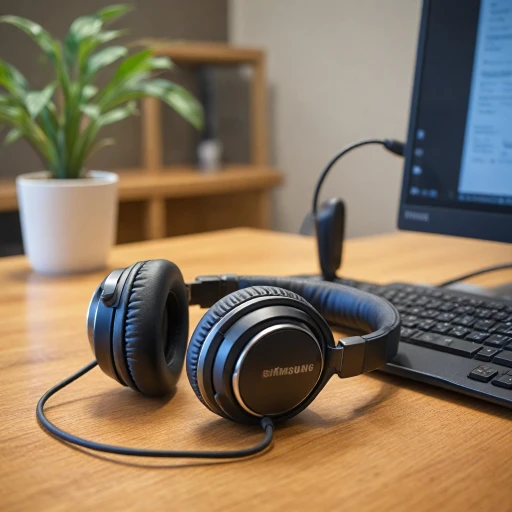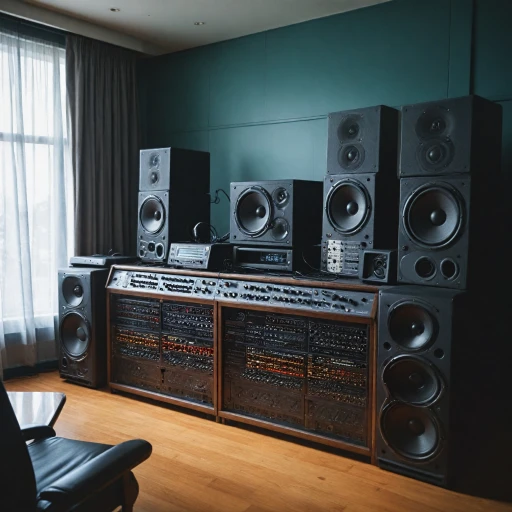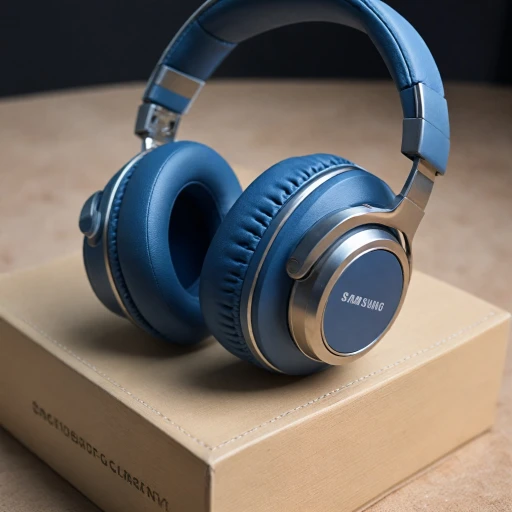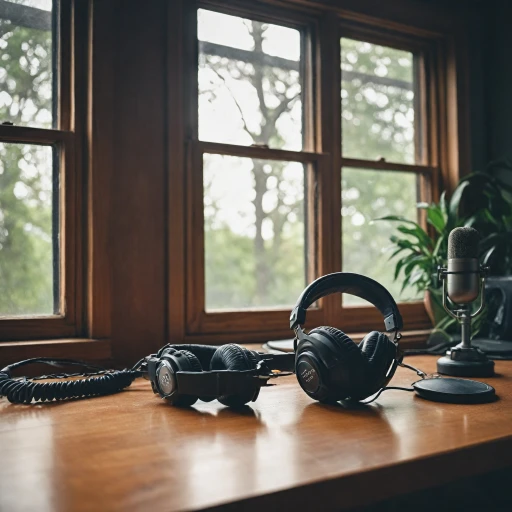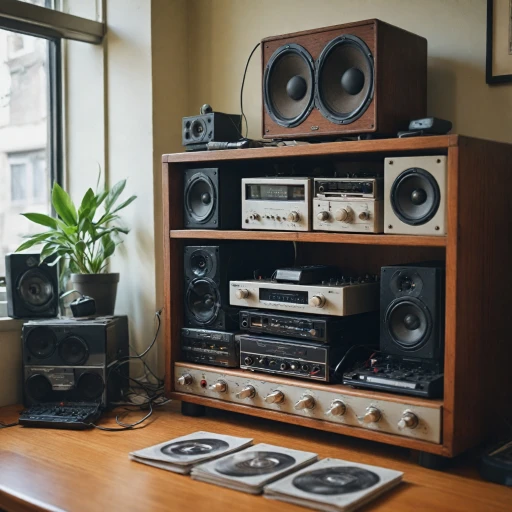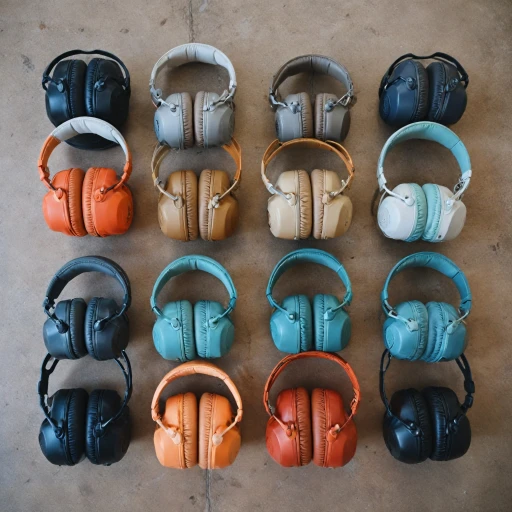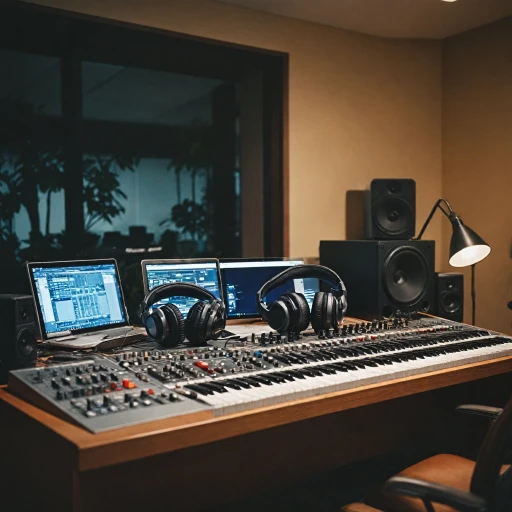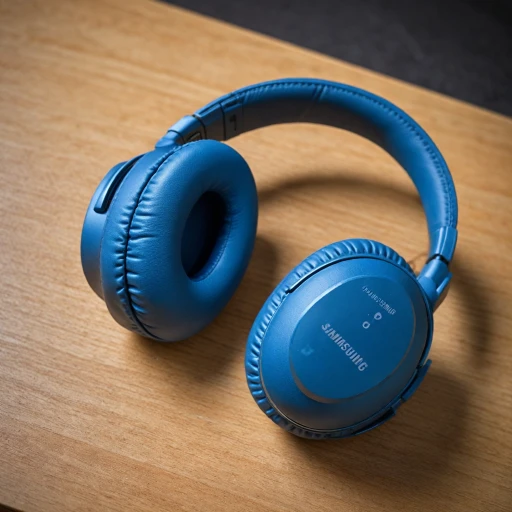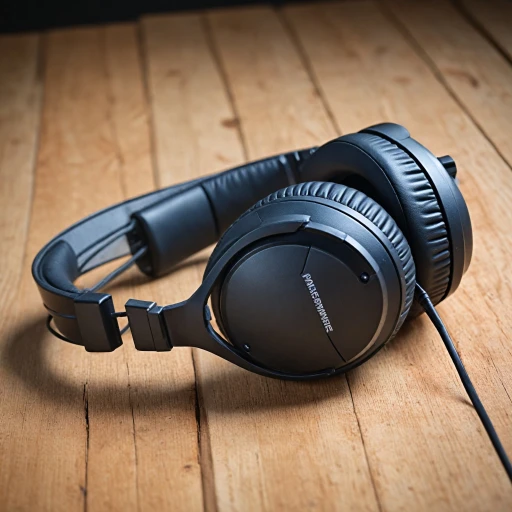Understanding Noise Canceling Technology
Delving into Noise Canceling Mechanics
Understanding the intricacies of noise canceling technology is essential when choosing the best studio headphones for your needs. In essence, noise canceling headphones use active noise control to reduce unwanted ambient sounds. This is achieved by creating sound waves that are the exact opposite of the ambient noise, effectively canceling it out. This allows for immersive listening experiences, whether for music production, mixing, or simply enjoying your favorite tracks. When considering studio headphones, it's crucial to differentiate between active and passive noise canceling features. Active noise canceling headphones actively use microphone arrays to detect external noise and neutralize it, while passive noise cancelation relies on the headphone's design, such as closed ear cups, to physically block out ambient sound. The technology employed in noise canceling can significantly affect your studio sessions, especially if you require a neutral sound for mixing or critical listening. Brands like Sony, Sennheiser, and Beyerdynamic Pro are renowned for their effective noise canceling capabilities, particularly in professional studio settings. Models like the Sony MDR series provide a wide frequency response, showcasing exceptional attention to the mid range, ensuring a good audio experience. Exploring the benefits of a tube headphone amplifier can further enhance your understanding of how these devices can complement noise canceling headphones, offering improved sound quality and depth. In subsequent sections, consider factors such as price and user reviews, as these aspects can guide you towards making a well-informed purchase that aligns with your audio and budgetary requirements.Key Features to Consider
Important Characteristics in Noise Canceling Headphones
When searching for the best studio headphones with noise canceling capabilities, several key features need to be considered to make an informed choice. These factors not only enhance your audio experience but also ensure that you are investing in headphones that suit your specific studio needs.- Frequency Response: A wide frequency response range is essential for achieving neutral sound. Most pro audio headphones range from 20 Hz to 20 kHz, but some models go beyond this. Consider researching headphone reviews focusing on response khz to find what best suits your music production requirements.
- Closed vs. Open Headphones: Whether you prefer open headphones for their natural sound quality during music mixing or closed headphones for their excellent isolation and deep bass, it's crucial to understand the differences. Closed designs work well for recording situations where bleed must be minimized, while open headphones better suit environments where sound leakage is not an issue.
- Comfort and Fit: Prolonged listening and studio sessions demand that your headphones are comfortable. Look for soft ear pads and adjustable headbands. Explore options like the beyerdynamic pro or sennheiser models, known for their comfy designs suitable for extended wear.
- Brand Reputation: Certain brands like Sony, Audio Technica, and Sennheiser are well-respected in the studio community, often delivering the best headphones for various audio applications. Steer your focus towards headphones that receive consistently good mid range reviews.
Top Brands and Models
The Leading Edge: Top Brands and Models in Studio Headphones
When diving into the realm of noise canceling headphones, various industry-leading brands stand out for their innovation and quality. Recognizing these key players in the audio market can help you navigate options and features, steering you towards the best studio headphones that fit your music production and listening needs.- Sennheiser: Known for delivering a balanced and neutral sound, Sennheiser's pro models are popular among audiophiles and sound engineers for providing a reliable audio experience. The Sennheiser Pro line guarantees a wide frequency response, catering to both critical listening and studio applications.
- Beyerdynamic: Often favored for their durability and precise audio reproduction, Beyerdynamic headphones are a staple in music studios. The Beyerdynamic Pro series, in particular, offers a sturdy build paired with high-quality sound that is preferred for professional mixing environments.
- Sony: Renowned for their excellent noise canceling features, Sony headphones, such as the Sony MDR series, merge superior bass with detailed sound staging. These headphones are favored in settings where ambient noise reduction is as crucial as audio clarity.
- Audio Technica: Featuring the acclaimed Technica ATH models, Audio Technica is celebrated for crafting headphones that excellently balance price and performance. They offer good options for budget-conscious users who still require high-quality audio.
- Professional Sound for Any Context: Choosing the right model depends heavily on your specific needs. Are you focusing on open headphones for a more expansive soundstage, or are closed headphones paramount for isolating sound? Understanding these differences will help in making a more informed choice.
Comparing Noise Canceling Capabilities
Evaluating Different Noise Canceling Capabilities
When selecting the best studio headphones for your needs, comparing the noise canceling capabilities across various models should be a key step. Noise canceling technology, as discussed earlier, plays a critical role in achieving a pure and immersive audio experience, especially in a professional studio setting.- Closed vs. Open Headphones: It's crucial to understand the difference between closed headphones and open headphones. Closed headphones are designed to block out external noise, enhancing the impact of noise canceling features. This design works well for situations that demand maximum isolation, like mixing or music production. On the other hand, open headphones allow some sound to escape, which can result in a more natural and ambient listening experience—ideal for listening or when a neutral sound profile is preferred.
- Understanding Specs Like Frequency Response: One should pay attention to specifications such as frequency response, as they contribute to the overall sound quality, clarity, and precision. The frequency response, measured in kHz, determines how well headphones can reproduce low bass, mid-range, and treble sounds.
- Consider the Music Genre: If your work focuses on bass-heavy music or includes critical mixing tasks, opting for headphones that accurately capture a wide range of frequencies will be beneficial.
User Reviews and Experiences
Real Users Weigh In on Their Studio Headphones
When it comes to choosing the best headphones for your studio needs, one of the most insightful resources is the wealth of user reviews and experiences available. These firsthand accounts can guide your decision by offering real-world insights into performance, usability, and longevity. Some users rave about the clarity and depth provided by options like the Beyerdynamic Pro series, especially for those involved in music production. These headphones often receive praise in reviews for their crisp mid range and comprehensive frequency response, crucial for accurate mixing and monitoring. For those who favor a neutral sound profile, the Sennheiser Pro series is often mentioned as delivering consistent performance in various settings. Perfect for audiophiles and studio professionals seeking balanced audio without exaggerated bass. The Sony MDR series is frequently highlighted for its closed design, making it a go-to for minimizing ambient noise during critical listening sessions. Users appreciate the comfort and sound isolation, which are essential for prolonged use in professional environments. Audio Technica, another prominent brand in the realm of studio headphones, offers several models lauded for their durability and sound quality. Users often point out the Technica ATH lineup as a good choice for those needing both open headphones and closed headphones options for varying studio activities. Beyond brand-specific preferences, many users emphasize checking the price range to ensure you get the best possible deal without sacrificing essential features. This echoes the sentiment from the previous sections emphasizing the balance between budget and required features. Overall, reading a variety of user reviews can provide reassurance and guidance in making your final purchase decision, offering real insights that spec sheets cannot fully capture.Making the Right Purchase Decision
Steps to Make an Informed Purchase
When it comes to choosing the best studio headphones with top-notch noise canceling capabilities, it's essential to amalgamate insights gathered from various aspects like technology, features, and user experiences. Here are steps you can take to ensure you make the right purchase decision:
- Identify Your Needs: Consider whether you need headphones for studio mixing, listening to music, or professional audio work. Open headphones can be great for mixing, offering a more natural sound, while closed headphones may be preferred for tracking and recording audio in noisy environments.
- Evaluate Key Features: Focus on critical characteristics like frequency response, mid range capabilities, and bass performance. A good review of these features will help determine the suitability of models like the Sony MDR, Sennheiser Pro, or Beyerdynamic Pro for your needs.
- Match With Your Budget: Price is a significant consideration. Define what you are willing to spend on studio headphones, keeping in mind that the best studio models can range widely in cost based on brand reputation and technological advancements.
- Brand Reliability: Brands like Audio Technica and Sennheiser are renowned for their durability and sound quality. Selecting from established brands can provide peace of mind with your purchase.
- Inspect Noise Canceling Capabilities: Compare how effectively different models isolate sound to ensure optimal audio experiences during music production or pro studio sessions.
- User Feedback: Dive into user reviews and experiences, as they often provide real-world insights into the audio, comfort, and durability of headphones. This research will give you a clearer picture of how each model performs over time.
Making a thoughtful decision in selecting your studio headphones involves balancing technical specifications with personal preferences. By considering all the factors above, you'll be better equipped to find the perfect studio headphones that cater to your specific audio needs.
